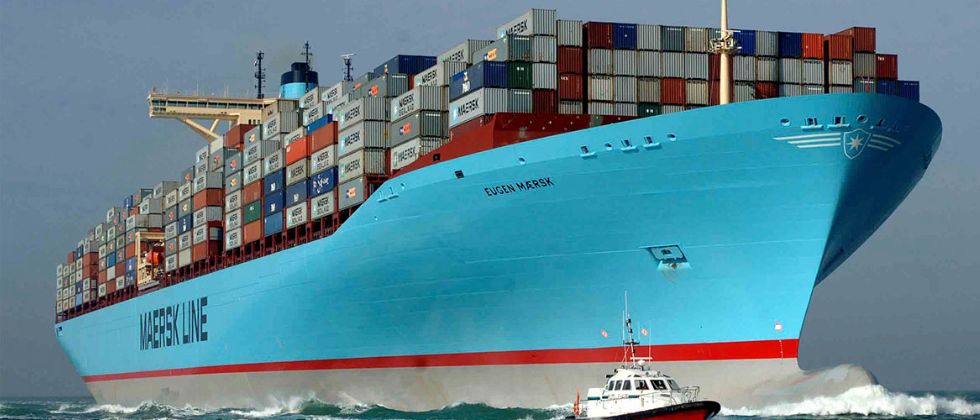California Management Review
California Management Review is a premier academic management journal published at UC Berkeley
by Lillian Dong

A large component of corporate activity of the 20th century was distinguished by an unprecedented interest in the cultivation of consumer interest. The commercialization of hospitality resulted in a need and desire for the type of connectedness and communication that pervades person-to-person and consumer-to-business relationships today.
Business-to-business enterprises can also benefit by enhancing their connection with consumers and other stakeholders. Social media has already become a powerful tool for B2C companies like Taco Bell and Safeway. Now, B2B companies have also joined social media platforms, despite their separation from customers. One such company is Maersk, a Danish shipping company founded in 1904, the largest of its kind, with 50% of its business from small customers.
In late 2011, Maersk began a campaign on social media with a focus on company authenticity, led by Jonathan Wichmann. He began with spontaneous Facebook posts featuring photos and stories and eventually responded to follower engagement with polls and audience contributions. While early support drew mostly from a niche group of shipping aficionados, experts, and employees, the company’s Facebook presence expanded to an audience of 400,000 page likes within eleven months. Wichmann’s campaign eventually won the company the European Digital Communications Awards in both 2012 and 2013, among other prestigious recognitions. Despite the campaign’s dedication to promoting public engagement rather than direct sales, Maersk’s social media presence would have been expected to factor into the economic growth of the firm itself.
However, while the effectiveness of Maersk’s social media team was undeniable, its overall benefit to the company’s bottom line is less concrete. Maersk’s stock more than doubled from the fourth quarter of 2011 to the end of the first quarter of 2015, and were regularly profitable even in rough markets.[4] However, this growth could easily be attributed to general market trends, increased operational efficiency, reduced unit costs, the profitability of its Oil and Drilling sectors, and its existing dominance in the shipping industry, rather than the increase in Maersk’s Facebook following.
While there have been no studies conducted on increases in the company’s stock demand in relation to the campaign, Maersk’s stock remains largely unaffordable for the average consumer, making audience expansion seem extraneous. While there has likely been an intangible psychological effect on consumers, or an increase in inter-company communications, there is little evidence that Maersk’s social media success directly influenced the firm’s performance.
That isn’t to say that the campaign is unimportant. It has tangibly helped company recruitment and hiring. When Maersk Drilling began looking for 3,000 new employees in 2013, it achieved a 600 percent increase in applications from previous recruitments by publicizing a subtle and innovative drilling-simulation [1]. However, the bulk of the success has mainly manifested itself in increased employee satisfaction with their jobs and roles as part of a company now reputed for its thought-leadership. Wichmann states of employees: “They’ve written that they now feel more proud of the company they work for, and that their friends and family now know what it is they do.” Additionally, a 2012 study conducted by McKinsey reports that worker productivity increases by 20-25 percent with increased public knowledge of the brand. [2] Similarly, in a 2012 survey, 67.1 percent of responding consumers and non-consumers reported “improved perception” of the company. As a result of its media-presence, Maersk has definitively enhanced in terms of humanization and publicity.
“They now feel more proud of the company they work for, and that their friends and family now know what it is they do.”
For B2B organizations, running a campaign for the general audience may seem rather irrelevant, especially with the distance of the consumer from corporate activities. However, capturing the key increases in connectivity resulting from the cultivation of influence during consumer campaigns has become a necessity. As information spreads and ethics evolve, companies that desire a positive public reputation must seek to foster transparency and engagement. Did Maersk’s social media strategy directly increase capital and aid business transactions? Not necessarily. But did social media humanize the brand? Yes. Was Maersk surprisingly successful in expanding communication with material that wasn’t exactly relatable? Definitely. Most importantly, Maersk has done this in a cost-friendly and economically successful way, as shown by its phenomenal following with just a low budget of $100,000 in its first year. Although the benefits of social media in relation to long-term B2B company growth are unclear as of now, communication remains important, and the investment posed far outweighs the marginal costs. Other B2B enterprises, if they aren’t already, should follow Maersk’s lead.
As information spreads and ethics evolve, companies that desire a positive public reputation must seek to foster transparency and engagement.
For more information on B2B marketing, management, and strategy, please see the full Berkeley-Haas Case Study on Maersk Line by Zsolt Katona and Miklos Sarvary.